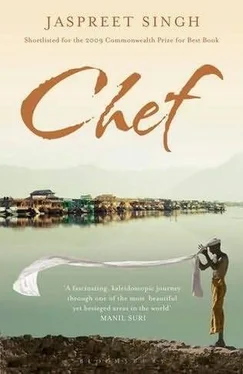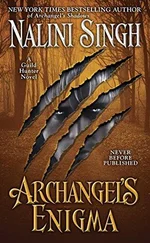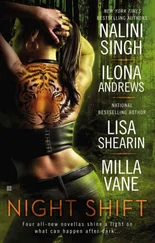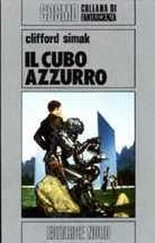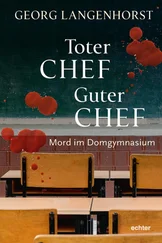The thing is wrecked.
A few pages later the address of Chef’s wife in Delhi is written. There are a couple more blank pages.
The river is brown and muddy and holy. The train roars over the bridge. The waters are sparkling with industrial froth. Naked children jump into the river. India, God’s naked country, is passing by. Mustard fields sway in the wind, they are the braids of air. Waves of tractors and bullock carts. (The fields make me think about yesterday’s news: mass suicides by starving farmers in the South.) Chimney smoke rises from an oil refinery. The smoke will blacken the white marble of the Taj. A pesticide factory flashes by. (The farmers killed themselves by drinking eight liters of agricultural pesticide.) Garbage. Streams of plastic. Hills of bottles, bags, wrappers. Cows chew on the plastic. Cell-phone towers. A cloud of butterflies, a little girl in a wrinkled pink frock is trying to catch them. A uranium mine. A huge banyan tree, the size of a village. Roots and knots everywhere. Nothing grows under a tree so thick. Thin dogs on a street. Fat goats. A butcher shop, condensation on the window. A temple, the gods are dancing. A ruined mosque. A herd of water buffaloes. Diseased mosquitoes hover on them. A mall building under construction. Water tanks. A receding platform, a receding city. A wave of nano cars. Then nothing. Only a profusion of signs. STD. BITS. ISD. HIV. C-h-i-l-d Beer. B-r-a-c-k-f-a-s-t. OK-TATA. 502 Bidi. Gandhi Spinal Hospital. FICCI welcomes the American President. Eat Cricket, Sleep Cricket, Drink only Coke. Veg-Non-Veg.
M-a-c B-u-g-e-r-s. D-o-m-i-n-o-s. L-a-t-i-n (not ‘latrine’).
God help us.
In Kashmir in autumn there are leaves which turn yellow but don’t fall. They cling hard to trees. The plane leaves fall, but there are trees (whose names I do not recall now) with yellow leaves that cling to branches. Last year’s leaves cling to this year’s tree. Even the strongest wind cannot separate them. What force bonds them tight?
When young I used to think if I picked up a terminal disease I would kill myself. But now my ideas on this have changed. I would like to cling to whatever life is left within me.
But.
There is one thing he wrote in the journal that burns me, and no matter how hard I try to forget, the thing still burns me. If someone else had said such things about me, I would not have given it much importance, but Kishen wrote those things with his own hand. That is why I was angry. I was angry at him and angry at myself for not expressing my anger. Despite his words I continued feeding him in the hospital while he was convalescing. I never brought it up.
I am reading the journal again and my hands shake.
Chef’s allegation involves General Sahib.
The other day I was sitting with a soldier in the hospital canteen, he writes, and the soldier uttered something vulgar about the nurse. She is a cockteaser, he said. She has a tattoo on her belly. I grabbed him by the collar. She is mine, I said. Leave her alone. Are you sure she is yours, Major? the soldier asked. She only does it with the officers. The soldier’s remark fumed me, increased my anger, he writes. How do you know she has a tattoo on her belly when she only does it with the officers? When you were away to the glacier, Major, she went to the border post with General Kumar and they spent the night in the same bunker. Two months later Sahib sent her to the Delhi HQ hospital for a while. The staff in Delhi told us that the rose tattoo had become a grotesque-shaped flower when her belly had swollen, and even more grotesque when it shrank. Things do not shrink back the same way, he said.
The General sent me to Siachen so that he could fuck with her, Chef writes. She says nothing has happened. I don’t believe a word. She is lying. She has never lied to me before, that bitch.
Chef records a long string of dialogue in bad handwriting at the bottom of the page:
She: ‘We slept on separate beds in the bunker. Nothing happened.’
Me: ‘What about the tattoo?’
She: ‘How many times do I have to tell you – tattoos on the belly get distorted with time.’
Me: ‘It was abortion.’
She: ‘Not true.’
Me: ‘What has the General paid you to keep quiet?’
She: ‘You are mad.’
Me: ‘If the General is innocent, then I know who did it.’
She: ‘Who?’
THE GENERAL’S RATION
No questions asked.
AN OFFICER’S RATION
Wheat flour/rice/bread 450g, sugar 90g, oil 80g, dal 40g, tea/coffee 9g, salt 20g, porridge 20g, custard powder 7g, cornflour 7g, ice cream/jelly 7g, condiments 600g/month, vegetables 170g, potatoes 110g, onions 60g, non-citric fruits 230g, citric fruits 110g, eggs 2, chicken 175g, meat dressed 260g, milk 250g, milk (for those who do not eat eggs) 1250g, cheese 50g.
A SOLDIER’S RATION
Wheat flour/rice/bread 620g; sugar 90g, oil 80g, dal 40g, tea/coffee 9g, salt 20g, condiments 600g/month, vegetables 170g, potatoes 110g, onions 60g, fruits 230g, meat dressed 110g, milk (veg) 750g, milk (non-veg) 250g.
I wish I were young again, he writes. Pretty Kashmiri girls, beautiful army wives, nurses – they all fall so easily for the boy. He doesn’t even have a full beard. Yet. He is fucking around that lun, that prick. Kip.
Perhaps the words were written under the influence of rum. But rum is no excuse.
None of it was true. General Kumar had not done it. Chef had no proof. Sahib was a man of highest morals. I, on the other hand, had yet to be with a woman. Other than my erotic reveries I had no experience. My body was simply going to waste. Chef was – that bloody bastard was simply writing lies about Sahib and about me.
Despite his lies I continued to cook for him when he was in hospital. I served him my ration of rum. I fed him his own recipes. I would take the tiffin-carrier to the hospital on bike. He never spoke. He did not speak to anyone. He looked so frail on that metal bed I could not hold anything against him. He lay on the white bed, wrapped in a blanket, his tattooed arm jutting out, stitches on his wrist, and I knew exactly what he was thinking. He was thinking life had ended before it began. The glacier had sucked him dry, that field of snow and ice, that hazaar thousand ton of snow, layers on top of each other, had sat on top of him and demolished his erections. He could no longer get it up; it had become a bonsai. On his tongue clung the taste of a woman’s body and the smell of its hollows, but the glacier had numbed him, and he and his bonsai had even forgotten what it felt like to drown in a woman’s fluids. No, up there, twenty thousand feet high, his brain, his organs, were drowning in his own blood. He was thinking there was no justice in the world.
Something fell from his hospital bed. His wallet in which he kept his wife’s photo. I picked it up and placed it beside him, and noticed he did not bat his eyes and he kept looking at me with bitterness. His breathing grew heavier, but he did not blink. He was thinking here is a young man, a tall cedar, and he is sleeping around with women twenty-four hours. Kashmiri women were delicate beauties, and the little ‘virile Sikh’ boy was sleeping around with them, and now and then older army wives, the memsahibs, invited him to their residences and made advances. I felt he wanted me to tell him about my sexual experiences. He wanted to listen to it all but he hated to talk to me. What he did not want to hear from me was the truth, I thought. I was twenty and still a virgin. Me, Kirpal, a virgin.
Outside the sun was brightening the plane trees, and fresh wind was blowing in the valley, and I realized it was time to head out to the bazaar. The streets were red, and on the way I saw women sweeping the leaves into huge piles, filling their big sacks with leaves, and I knew why. They made charcoal in their homes, mixing leaves and sawdust. They used the charcoal in braziers in winter to keep warm. On the way to the bazaar I slowed down my bike and watched the women sweep the leaves. Their breasts alive inside beautiful pherans. I felt empty. I felt like a one big nothing. I was not even worth a soldier’s ration.
Читать дальше
Конец ознакомительного отрывка
Купить книгу
